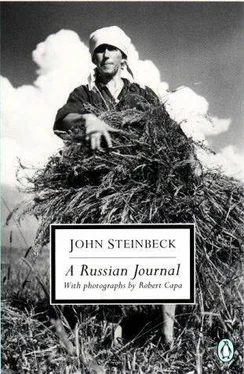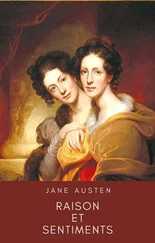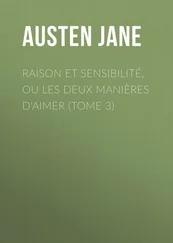John Steinbeck - A Russian Journal
Здесь есть возможность читать онлайн «John Steinbeck - A Russian Journal» весь текст электронной книги совершенно бесплатно (целиком полную версию без сокращений). В некоторых случаях можно слушать аудио, скачать через торрент в формате fb2 и присутствует краткое содержание. Жанр: Классическая проза, на английском языке. Описание произведения, (предисловие) а так же отзывы посетителей доступны на портале библиотеки ЛибКат.
- Название:A Russian Journal
- Автор:
- Жанр:
- Год:неизвестен
- ISBN:нет данных
- Рейтинг книги:4 / 5. Голосов: 1
-
Избранное:Добавить в избранное
- Отзывы:
-
Ваша оценка:
- 80
- 1
- 2
- 3
- 4
- 5
A Russian Journal: краткое содержание, описание и аннотация
Предлагаем к чтению аннотацию, описание, краткое содержание или предисловие (зависит от того, что написал сам автор книги «A Russian Journal»). Если вы не нашли необходимую информацию о книге — напишите в комментариях, мы постараемся отыскать её.
A Russian Journal — читать онлайн бесплатно полную книгу (весь текст) целиком
Ниже представлен текст книги, разбитый по страницам. Система сохранения места последней прочитанной страницы, позволяет с удобством читать онлайн бесплатно книгу «A Russian Journal», без необходимости каждый раз заново искать на чём Вы остановились. Поставьте закладку, и сможете в любой момент перейти на страницу, на которой закончили чтение.
Интервал:
Закладка:
My abandoning of vodka in the toasts and the substitution of wine made me much happier in the stomach, although I probably was regarded as a weakling, but I was a healthier weakling. Vodka just didn't agree with me. The dinner concluded about eleven o'clock in good feeling. No one else ventured to tell us what to write.
Our passage was booked now. We were to leave in three days, and still there was no clearance of our pictures. Capa was a brooding mass of unhappiness. The people at the American Embassy and the correspondents had been so kind to us that we felt we ought to give a cocktail party. Poor Stevens of the Christian Science Monitor had one of the few houses in Moscow. The rest lived in hotels. So Stevens got chosen to give the party. There was not much he could do about it, even if he had wanted to. We made a guest list and found that at least a hundred people had to be invited, and Stevens's living-room could comfortably hold about twenty. But there was no help for that. We thought perhaps some wouldn't come, but we were wrong. A hundred and fifty came. Parties are very desirable things in Moscow. It was a gay party too, but there wasn't much drinking. The room was so crowded that you could hardly get your arm up to your mouth, and once you did you couldn't get it down again. Stevens never got to see much of his party; quite early he got trapped in a corner, and he never escaped from it.
Our profound thanks are due to the Embassy staff and the correspondents. They gave us every possible help and encouragement. And we think they are doing a very good job under trying and difficult conditions. For one thing, they are not losing their heads as so many people are in the world. It is probably the touchiest political scene in the world today, and far from the most pleasant. Our compliments go to the whole group, from the Ambassador to the T/5 who was rewiring the Embassy.
We were to leave on Sunday morning. On Friday night we went to the ballet at the Bolshoi Theater. When we came out there was a rush telephone call for us. It was Mr. Karaganov of Voks. He had finally got word from the Foreign Office. Our films had to be developed and inspected, every single one of them, before they could leave the country. He would put a crew to work developing the pictures-three thousand pictures. We wondered how it could have been done if we had had to do it at this last moment. They did not know that all the pictures had already been developed. Capa packed up all his negatives, and early in the morning a messenger came for them. He spent a day of agony. He paced about, clucking like a mother hen who has lost her babies. He made plans, he would not leave the country without his films. He would cancel his reservation. He would not agree to have the films sent after him. He grunted and paced the room. He washed his hair two or three times and forgot to take a bath at all. He could have had a baby with half the trouble and pain. My notes were not even requested. It wouldn't have made much difference if they had been, no one could have read them. I have trouble reading them myself.
We spent the day visiting and promising to send various scarce articles to various people. Sweet Joe was a little sad to see us leave, we think. We had robbed him of cigarettes and books, had used his clothes and his soap and his toilet paper, had outraged his slender stock of whisky, had violated his hospitality in every possible way, and still we think he was sorry to see us go.
Half the time Capa plotted counterrevolution if anything happened to his films, and half the time he considered simple suicide. He wondered if he could cut off his own head on the execution block in Red Square. We had a sad little party in the Grand Hotel that night. The music was louder than ever, and the bar girl we had named Miss Sichass (Miss Hurry-up) was slower than ever.
We got up in the dark to go to the airport for the last time. We sat for the last time under the portrait of Stalin, and it seemed to us that he was smiling satirically over his medals. We drank the usual tea, and Capa by now had the jerks. And then a messenger arrived and put a box in his hands. It was a tough cardboard box, and the lid was sewed on with string, and over the knots were little leaden seals. He was not to touch the seals until we had cleared the airfield at Kiev, the last stop before Prague.
Mr. Karaganov, Mr. Chmarsky, Sweet Lana, and Sweet Joe Newman saw us off. Our baggage was much lighter than it had been, for we had given away everything we could spare-suits, and jackets, some cameras, all the extra flash bulbs, and the unexposed film. We climbed into the plane and took our seats. It was four hours to Kiev. Capa held the cardboard box in his hand, and he was not allowed to open it. If the seals were broken it would not pass. He weighed it in his hand. "It is light," he said miserably. "It is only half heavy enough."
I said, "Maybe they put rocks in it, maybe there aren't any films in there at all."
He shook the box. "It sounds like films," he said.
"It could be old newspapers," I said.
"You son-of-a-bitch," he remarked. And he argued with himself. "What would they want to take out?" he asked. "It wasn't anything that could hurt."
"Maybe they just don't like Capa pictures," I suggested.
The plane flew over the great flat lands with their forests and fields, and the silver river winding and twisting. It was a beautiful day, and the thin blue mist of autumn hung close to the ground. The hostess took pink soda to the crew, and came back and opened a bottle for herself.
At noon we coasted into the field at Kiev. The customs man gave our baggage a cursory inspection, but the box of film was instantly picked up. They had a message concerning it. An official cut the strings while Capa looked on like a stricken sheep. And then the officials all smiled, and shook hands, and went out, and the door closed, and the engines turned over. Capa's hands shook as he opened his box. The films seemed to be all there. He smiled and put back his head, and he was asleep before the ship could get into the air. Some negatives had been taken, but not many. They had removed films that showed too much topography, and the telephoto picture of the mad girl of Stalingrad was gone, and the pictures which showed prisoners, but nothing that mattered from our point of view was withheld. The farms and the faces, the pictures of the Russian people, were intact, and those were what we had gone for in the first place.
The airplane crossed the border, and early in the afternoon we landed in Prague, and I had to awaken Capa.
Well, there it is. It's about what we went for. We found, as we had suspected, that the Russian people are people, and, as with other people, that they are very nice. The ones we met had a hatred of war, they wanted the same things all people want-good lives, increased'comfort, security, and peace.
We know that this journal will not be satisfactory either to the ecclesiastical Left, nor the lumpen Right. The first will say it is anti-Russian, and the second that it is pro-Russian. Surely it is superficial, and how could it be otherwise? We have no conclusions to draw, except that Russian people are like all other people in the world. Some bad ones there are surely, but by far the greater number are very good.
John Steinbeck

Born in Salinas, California, in 1902, John Steinbeck grew up in a fertile agricultural valley about twenty-five miles from the Pacific Coast – and both valley and coast would serve as settings for some of his best fiction. In 1919 he went to Stanford University, where he intermittently enrolled in literature and writing courses until he left in 1925 without taking a degree. During the next five years he supported himself as a labourer and journalist in New York City, all the time working on his first novel, Cup of Gold (1929). After marriage and a move to Pacific Grove, he published two Californian fictions, The Pastures of Heaven (1932) and To a God Unknown (1933), and worked on short stories later collected in The Long Valley (1938). Popular success and financial security came only with Tortilla Flat (1935), stories about Monterey's paisanos. A ceaseless experimenter throughout his career, Steinbeck changed courses regularly. Three powerful novels of the late 1930s focused on the Californian labouring class: In Dubious Battle (1936), Of Mice and Men (1937), and the book considered by many his finest, The Grapes of Wrath (1939). Early in the 1940s, Steinbeck became a filmmaker with The Forgotten Village (1941) and a serious student of marine biology with Sea of Cortez (1941). He devoted his services to the war, writing Bombs Away (1942) and the controversial play-novelette The Moon is Down (1942). Cannery Row (1945), The Wayward Bus (1947), The Pearl (1947), A Russian Journal (1948), another experimental drama, Burning Bright (1950), and The Log from the Sea of Cortez (1951) preceded publication of the monumental East of Eden (1952), an ambitious saga of the Salinas Valley and his own family's history. The last decades of his life were spent in New York City and Sag Harbor with his third wife, with whom he travelled widely. Later books include Sweet Thursday (1954), The Short Reign of Pippin IV: A Fabrication (1957), Once There Was a War (1958), The Winter of Our Discontent (1961), Travels with Charley in Search of America (1962), America and Americans (1966), and the posthumously published Journal of a Novel: The East of Eden Letters (1969), Viva Zapata! (1975), The Acts of King Arthur and His Noble Knights (1976), and Working Days: The Journals o/The Grapes of Wrath (1989). He died in 1968, having won a Nobel Prize in 1962.
Читать дальшеИнтервал:
Закладка:
Похожие книги на «A Russian Journal»
Представляем Вашему вниманию похожие книги на «A Russian Journal» списком для выбора. Мы отобрали схожую по названию и смыслу литературу в надежде предоставить читателям больше вариантов отыскать новые, интересные, ещё непрочитанные произведения.
Обсуждение, отзывы о книге «A Russian Journal» и просто собственные мнения читателей. Оставьте ваши комментарии, напишите, что Вы думаете о произведении, его смысле или главных героях. Укажите что конкретно понравилось, а что нет, и почему Вы так считаете.











